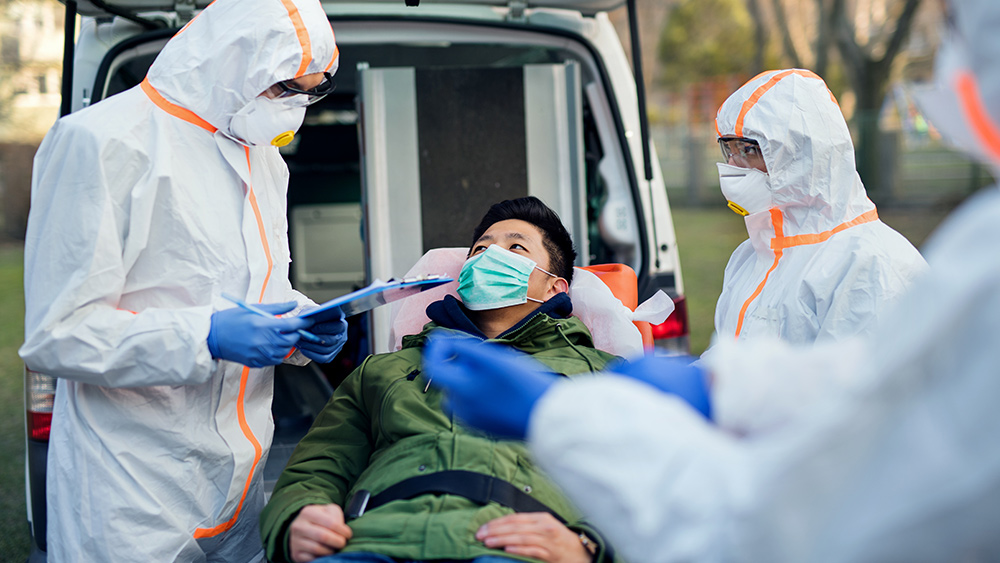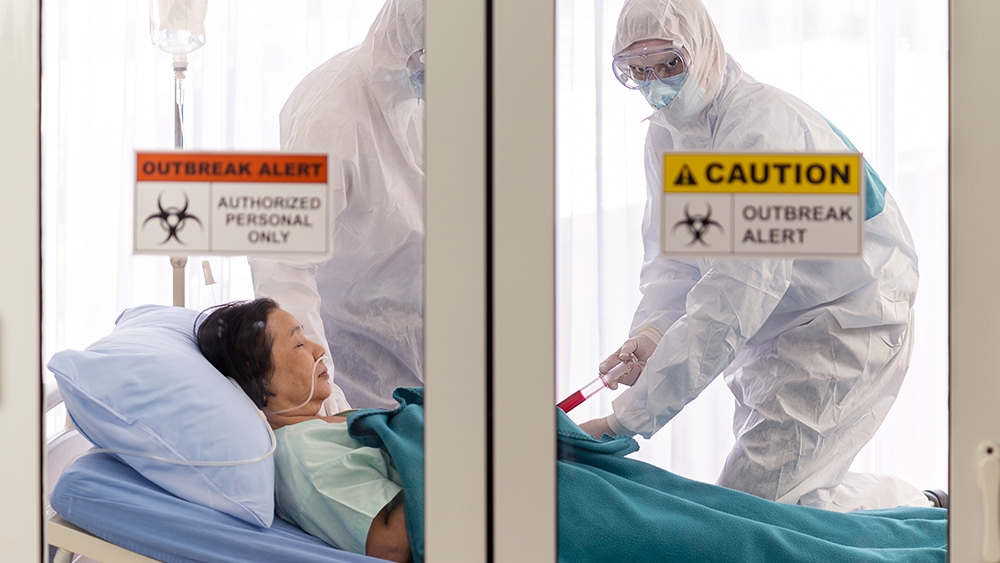Incredible non-invasive medical device reduces need for CT scans that expose patients to radiation
03/05/2020 / By Franz Walker

CT scans use ionizing radiation to take a look inside the body, exposing patients to the risk of cancer. Now, researchers have found that a recently FDA-approved device can reduce the need for CT scans for traumatic brain injury by as much as 30 percent.
Called BrainScope One, the device comes from the BrainScope Company, Inc. – a medical neuro-technological company whose investors include America Online (AOL) co-founder Steve Case. Researchers at the Washington University Barnes Jewish Medical Center in St. Louis found that using the device resulted in a 30 percent reduction in unnecessary CT scans for traumatic brain injury evaluations.
BrainScope One as a method for scanning for traumatic brain injury
According to BrainScope Company, their device is not intended as a replacement for a CT scan; BrainScope One helps check if patients could possibly be suffering from a traumatic brain injury and may need scanning.
To scan a patient’s brain, BrainScope One uses electroencephalography (EEG) to check the electronic activity of the brain, using a proprietary disposable headset. After scanning, BrainScope One uses AI-based algorithms to provide clinically relevant information on whether a patient has suffered structural brain injury, and may need an actual CT scan.
To test the BrainScope One, the researchers sampled 91 patients who had reported to the Washington University Barnes Jewish Medical Center‘s emergency room within three days of sustaining a closed head injury. All 91 patients had been recommended for a CT scan, the results of which were evaluated by the on-site neurologist for possible traumatic brain injury. The patients received a five- to 10-minute BrainScope EEG-based Structural Injury Classifier (SIC) evaluation.
Based on the testing, the team concluded that including a BrainScope EEG-based SIC test would lead to a significant reduction in the number of required CT scans. More importantly, this reduction in CT scan use and its associated radiation exposure was achieved without any false negative cases — BrainScope One did not clear any patients who may really have needed a CT scan.
Traumatic brain injury awareness is driving up CT scan use
The Centers for Disease Control and Prevention (CDC) states that those with traumatic brain injury are at a greater risk of both subsequent additional injury and death by other causes. These include seizures, unintentional drug poisoning, as well as infections such as pneumonia. Additionally, the CDC estimates that 80 percent of all traumatic brain injuries in adults come from falls, while majority of those in children come from sports and other recreational activities.
The greater awareness of the risks associated with traumatic brain injury, however, has caused the number of visits to the ER for even mild traumatic brain injury to increase.
The Department of Health and Human Services (HHS) reports an annual average of 283,000 people visiting the ER due to traumatic brain injuries from either sports or recreational activities. More than 80 percent of these patients receive a CT scan – and more than 90 percent of which are found to be negative. This practice ends up unnecessarily exposing patients to cancer-causing ionizing radiation from the CT scan, while also unnecessarily using up hospital ER resources. (Related:Did you know that CT scans increase your cancer risk by a whopping 35 percent?)
With the study demonstrating BrainScope One’s effectiveness in identifying the large majority of patients who don’t actually need a CT scan, its deployment in ERs around the country should drive down CT scan use for patients coming in for closed head injuries. Doing so can reduce the number of people exposing their bodies to something far worse.
Sources include:
Tagged Under: AI, artificial intelligence, brain health, BrainScope One, breakthrough, closed head injury, CT scan, emergency room, goodtech, innovation, inventions, medical tech, prevention, radiation, traumatic brain injury


















